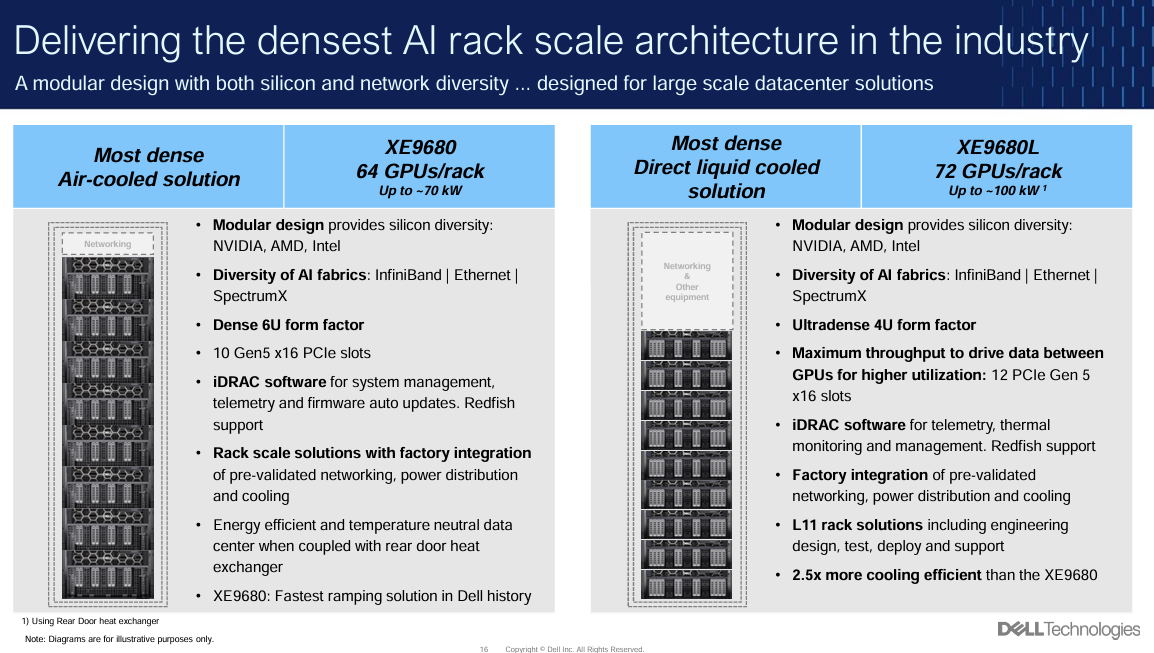Dell Technologies Chief Operating Officer Jeff Clarke said “there’s no question that AI is coming to the enterprise” due to data gravity and proprietary information that won’t be moved to the cloud.
Today, the generative AI buildout is primarily driven by cloud service providers, but enterprises are starting to drive demand. Indeed, Dell Technologies and HPE saw strong growth in AI servers with enterprises becoming part of the mix.
Speaking at the Goldman Sachs Communacopia + Technology conference, Clark said:
“There's no question AIs coming to the enterprise. One through all the data is, and data is very expensive to move. And in many cases, that is proprietary is unique. It's part of your business model, your value add, your secret sauce. It's not going to be transferred into other things. So, data gravity is clearly driving AI over time to the enterprise.”
Clarke added that there are five foundational models trained on anywhere from 30- to 50-terabytes of data. “Dell has hundreds of petabytes of data and we’re not unique. Let’s just say it’s all value-added data for the moment,” said Clarke. “We're going to do fine tuning and run inference on our data to make us serve our customers better. And every customer is going to go through that same sort of calculus. They're going to try to understand what part of their data allows them to serve their customers better, produce their products and services better, serve their customers better in terms of services or end user services.”
What will be different with enterprise AI will be the deployment model. Clarke said hyperscale cloud providers are buying AI infrastructure in bulk. Enterprises aren’t likely to deploy AI in large clusters. “They’re going to deploy it as a model here and a usage model there,” said Clarke. “We’re seeing customers experiment.”
Clarke added that enterprises are also upgrading servers with AI capabilities to replace older hardware from the COVID-19 pandemic. “We went through the longest digestion period in the history of the server marketplace eight quarters. Data centers are full of older products,” he said.
As for use cases, Clarke said genAI use cases boil down to the big five. “Five primary use cases really are driving what we see in enterprise. One is around cogeneration. Two is around agents and sales assistance. Three is a focus on content creation, content automation. Four is around customer service and the fifth is around supply chain. Those use cases are universal across most companies,” he said.
Enterprise demand is also being driven by a few verticals. Clarke cited financial services and quant traders being aggressive with AI. Pharmaceuticals are another area as is healthcare. Industrials, manufacturing and oil and gas are also driving enterprise AI demand.



